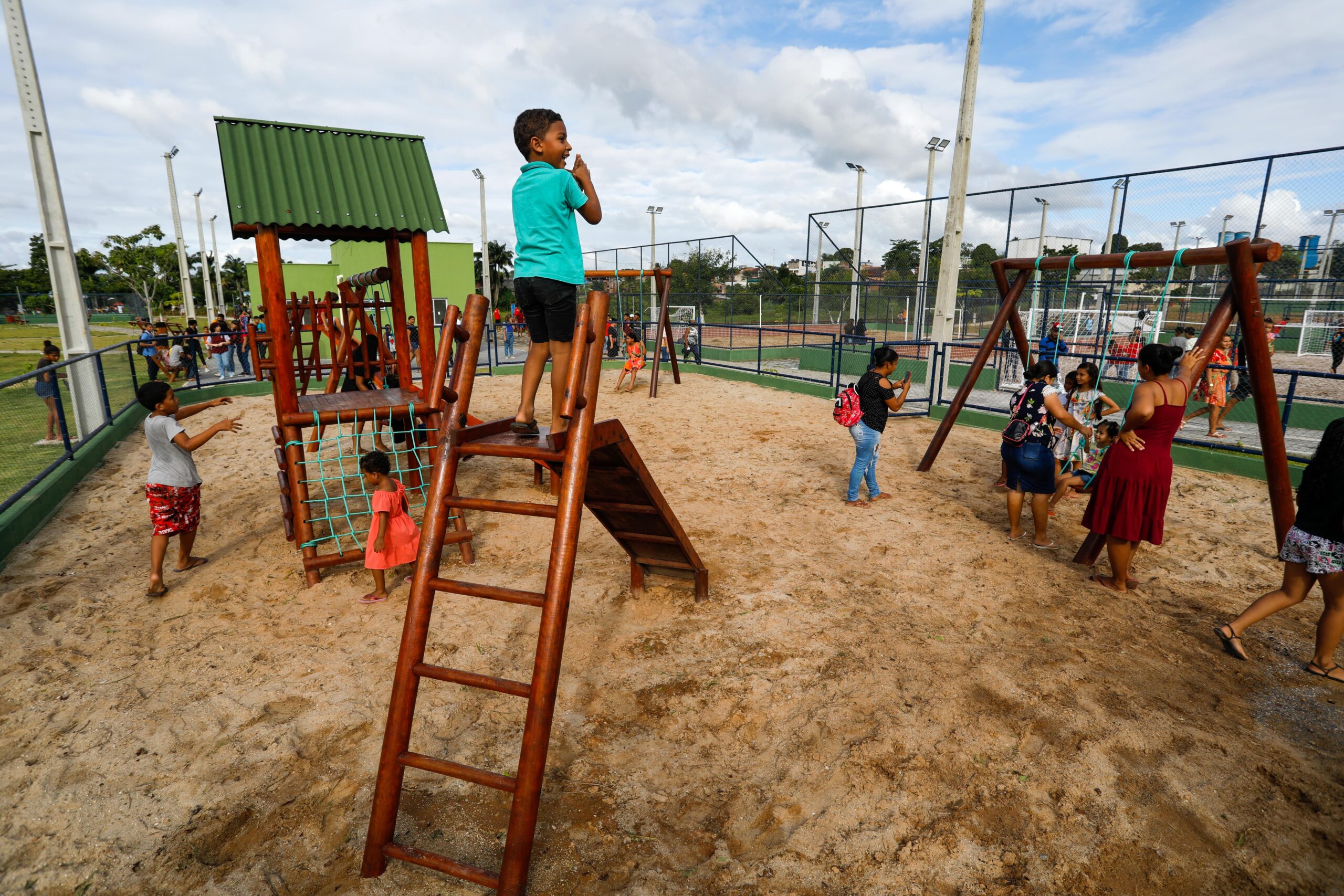Supporting women is essential for early childhood policies
First steps on a journey to transform health and wellbeing in Pernambuco
First steps on a journey to transform health and wellbeing in Pernambuco
 Photo: Miva Filho
Photo: Miva Filho
Early childhood provides a good guide for designing policy in government. It sits at the intersection of a range of services from education to health, social assistance and public infrastructure. As the Mayor of Caruaru from 2017 to 2022, a municipality in the state of Pernambuco in north-eastern Brazil, I used the national Early Childhood Legal Framework – passed in 2016 – as a starting point to develop intersectoral municipal policies (Government of Brazil, 2016).
These policies recognised that supporting children also means supporting their caregivers – and the main caregivers are usually women. Caregiving responsibilities bring women pressure and stress, adding to the inequality they already face. We passed a law in Caruaru, for example, to guarantee assistance to pregnant women before and after childbirth (Municipality of Caruaru, 2017). We built a new maternity hospital and 16 early childhood education centres, tripling the number of children served and enabling more mothers to access training that leads to a professional qualification.
We also partnered with the Van Leer Foundation’s Urban95 programme to improve the collection and sharing of data across education, health and social assistance that allowed us to identify women in need of support. In 2020, the Abrinq Foundation recognised these and other achievements by awarding the municipality its Friend of Childhood Seal (Fundação Abrinq, no date).
“Moving from municipal- to state-level governance brings challenges beyond simply needing to serve a larger population.”
But is it possible to emulate this policy platform on a wider scale? In the 2022 state elections, I was elected Governor of Pernambuco. Vice-Governor Priscila Krause and I became the first all-female state-level administration in the history of Brazil. But we quickly found that moving from municipal- to state-level governance brings challenges beyond simply needing to serve a larger population. It is also about managing differences in contexts across the region, in which many people live in conditions that heighten their levels of vulnerability.
Our ambition is to ensure complete and integrated care for every child from Pernambuco, considering child development in all its different dimensions, involving children, caregivers and the environments in which they interact. We aim to deliver interventions and services that strengthen the ability of mothers in vulnerable circumstances to provide their children with adequate nutrition, stimuli, love, and protection against stress and violence.
We knew we needed to begin this process by better understanding the experiences of children and women in the state. Many of the statistics are discouraging. Poverty increased more in 2021 in Pernambuco than in any other Brazilian state, climbing by over 8 percentage points in just a year – which meant over 800,000 more people falling back into poverty (FGV Social, 2022). Only 32.6% of pregnant women in Pernambuco had at least seven medical check-ups during pregnancy, as the Ministry of Health recommends. The state’s child mortality rate is high – 12.42 per 1,000 live births in Pernambuco in 2021 (Instituto Brasileiro de Geografia e Estatística, 2021) – and we know that 70% of those deaths were avoidable. Only 17.7% of children aged 3 years and younger are in nurseries or daycare facilities, the lowest percentage among states in Brazil’s Northeast Region (National Council of Justice, 2019).
“This shortfall in daycare facilities contributes to perpetuating the high poverty rates.”
As access to high-quality childcare has been shown to increase women’s participation in the labour market (OECD Development Centre, 2014), we believe this shortfall in daycare facilities contributes to perpetuating the high poverty rates. In Pernambuco, women are the demographic group most likely to live in poverty – at a rate of 52.3% in 2021 – followed by children from birth to age 9 (FGV Social, 2022). The gender disparity is reflected across Brazil, where 19.3% of female-headed households experienced severe food insecurity in 2022, compared to 11.9% of male-headed households (Rede PENSSAM, 2022).
Within these statistics lie many and varied human stories, so our First State Plan for Early Childhood starts with listening – to civil society, municipal governments, women and children. We envision this plan will include intersectoral actions, from the prenatal stage to a child’s support network. It will identify bottlenecks and implement solutions, from building maternity units to creating 60,000 new openings in daycare facilities across the state, and improving the quality of early childhood education in partnership with municipalities. As of November of 2023, we’ve submitted for approval a law project for the “Mothers of Pernambuco”, a conditional cash-transfer programme for women in poverty who have children up to 6 years old, which also offers them professional and school qualifications.
These are only the first steps on the journey. It is our duty, as the people’s representatives, to guarantee citizenship and dignity even to those who do not yet have a voice to speak for themselves. Supporting children to thrive starts with ensuring the health and wellbeing of women in Pernambuco, so they have the capacity to provide their children with a safer and more nurturing environment.
All references can be found in the PDF version of this article.
See how we use your personal data by reading our privacy statement.
This information is for research purposes and will not be added to our mailing list or used to send you unsolicited mail unless you opt-in.
See how we use your personal data by reading our privacy statement.